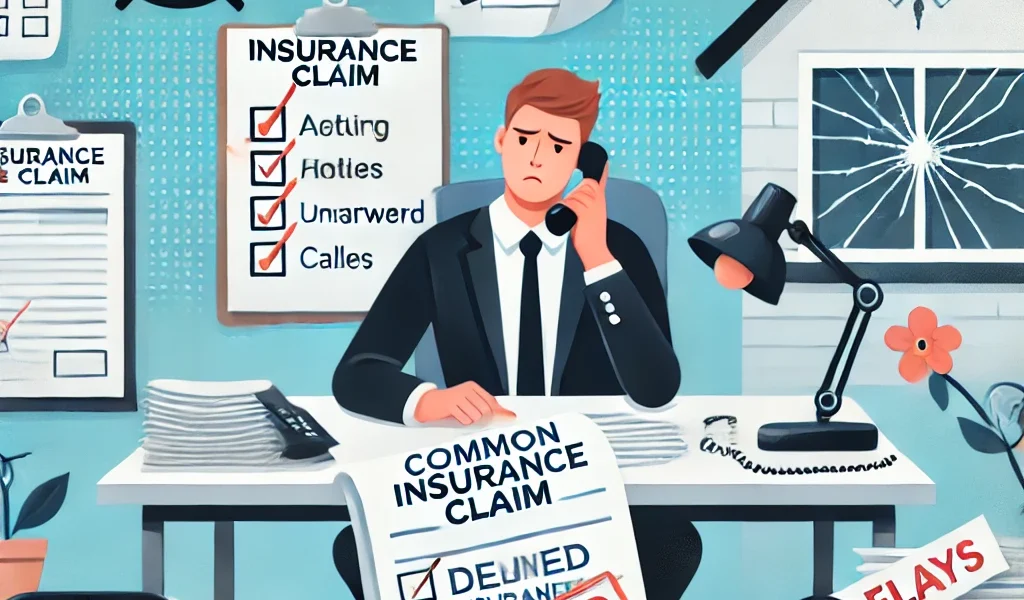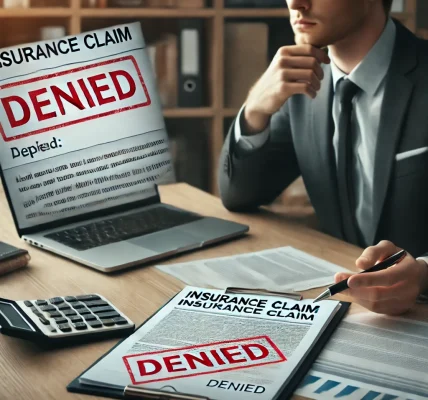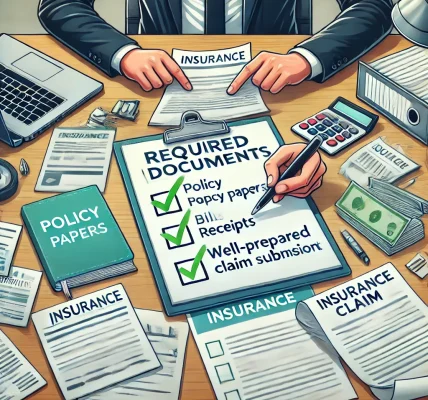Filing an insurance claim can be a stressful experience, especially when you’re dealing with an emergency. However, the process can become even more frustrating if your claim is delayed due to avoidable mistakes. Insurance companies have strict guidelines and policies in place, and even small errors in documentation, communication, or timing can lead to significant delays.
In this DIY guide, we will explore the most common insurance claim mistakes and how you can avoid them to ensure a smooth and quick payout.
1. Delaying the Claim Filing Process
Why It Happens:
Many policyholders wait too long before notifying their insurer about an incident, assuming they have plenty of time to file a claim. Unfortunately, most insurance policies have specific time limits within which a claim must be reported.
How to Avoid It:
- Report the claim as soon as possible to your insurance company.
- Check your policy’s filing deadline and ensure you meet it.
- Even if you don’t have all the required documents immediately, initiate the claim process to avoid disqualification.
2. Incomplete or Incorrect Documentation
Why It Happens:
Missing essential documents like receipts, photos, medical reports, or repair estimates can cause significant delays. Providing incorrect information—whether intentional or accidental—can also raise red flags with your insurer.
How to Avoid It:
- Double-check your paperwork before submitting your claim.
- Take clear and detailed photographs of any damages.
- Collect and keep all receipts and invoices related to repairs, medical expenses, or temporary housing (for property claims).
- Ensure all personal details (name, policy number, contact details) are accurate.
3. Lack of Proper Evidence
Why It Happens:
If there’s not enough proof of damage or loss, insurers may delay or even deny the claim. Without proper evidence, proving the legitimacy of your claim becomes difficult.
How to Avoid It:
- Take photos and videos of the damages immediately after the incident.
- If applicable, get a police report for accidents, theft, or vandalism.
- Keep copies of emails and messages exchanged with service providers and insurers.
- Maintain a written record of events including dates, times, and locations.
4. Exaggerating or Misrepresenting the Claim
Why It Happens:
Some policyholders inflate the extent of damage or provide misleading details, assuming it will increase their payout. However, insurers have investigative teams that can detect fraud.
How to Avoid It:
- Be honest and transparent when reporting damages or losses.
- Stick to the facts and provide accurate information.
- Misrepresentation can lead to claim rejection or legal consequences.
5. Repairing Damages Before Inspection
Why It Happens:
Many policyholders immediately start repairing damages before an insurance adjuster can inspect them, which can make it difficult for the insurer to assess the extent of the loss.
How to Avoid It:
- Wait for the insurance adjuster to inspect the damage before making repairs.
- If emergency repairs are necessary, take before-and-after photos and keep all repair receipts.
- Inform your insurer about any urgent repairs needed and get written approval if required.
6. Not Understanding Your Policy Coverage
Why It Happens:
Many claimants assume that their policy covers everything, only to be surprised when their claim is denied or partially paid.
How to Avoid It:
- Read your policy document carefully and understand the inclusions and exclusions.
- If unsure, speak with your insurance agent to clarify coverage details.
- Be aware of any deductibles and how they affect your payout.
7. Ignoring the Fine Print and Policy Exclusions
Why It Happens:
Some policyholders don’t take the time to read the fine print, missing out on important exclusions that could impact their claim.
How to Avoid It:
- Go through the terms and conditions of your policy before filing a claim.
- Be aware of specific exclusions that may apply.
- If necessary, ask your insurer to provide a written clarification on coverage.
8. Not Cooperating with the Insurance Adjuster
Why It Happens:
Being uncooperative, failing to provide requested documents, or being argumentative with the adjuster can result in unnecessary claim delays.
How to Avoid It:
- Be polite and cooperative when dealing with the insurance adjuster.
- Provide all requested documents promptly.
- If you feel the adjuster’s evaluation is unfair, request a reassessment with supporting documents.
9. Accepting a Low Settlement Without Negotiation
Why It Happens:
Some policyholders accept the first offer from the insurance company without realizing they have the right to negotiate.
How to Avoid It:
- Review the initial offer carefully before accepting.
- If you believe the settlement is too low, negotiate with supporting evidence.
- If needed, consult a public adjuster or legal expert for guidance.
10. Filing Too Many Small Claims
Why It Happens:
Some people file frequent small claims without considering their impact on future premiums and policy renewals.
How to Avoid It:
- Consider covering minor damages out of pocket if they are close to your deductible.
- Avoid filing unnecessary claims that could lead to higher premiums or policy cancellation.
Frequently Asked Questions (FAQs)
Q1: What should I do if my claim is taking too long?
Contact your insurer and request a status update. If delays persist, escalate the issue to a senior claims officer or regulatory body.
Q2: Can I challenge a denied insurance claim?
Yes, you can appeal a denied claim by providing additional documentation, requesting a reassessment, or consulting a lawyer if necessary.
Q3: Does a delayed claim mean it will be denied?
Not necessarily. Delays often occur due to missing documents or a backlog of claims. Follow up regularly to keep the process moving.
Q4: Can I withdraw my insurance claim?
Yes, you can withdraw your claim at any time if you decide not to proceed. However, inform your insurer in writing to avoid misunderstandings.
Final Thoughts
Filing an insurance claim doesn’t have to be a complicated process, but small mistakes can lead to unnecessary delays or even denials. By being proactive, organized, and informed about your policy, you can avoid common claim mistakes and ensure a smoother, faster payout.
If you follow these tips, you’ll not only increase your chances of a successful claim but also make the process far less stressful. Stay informed, keep good records, and don’t hesitate to ask questions—your financial recovery depends on it!




